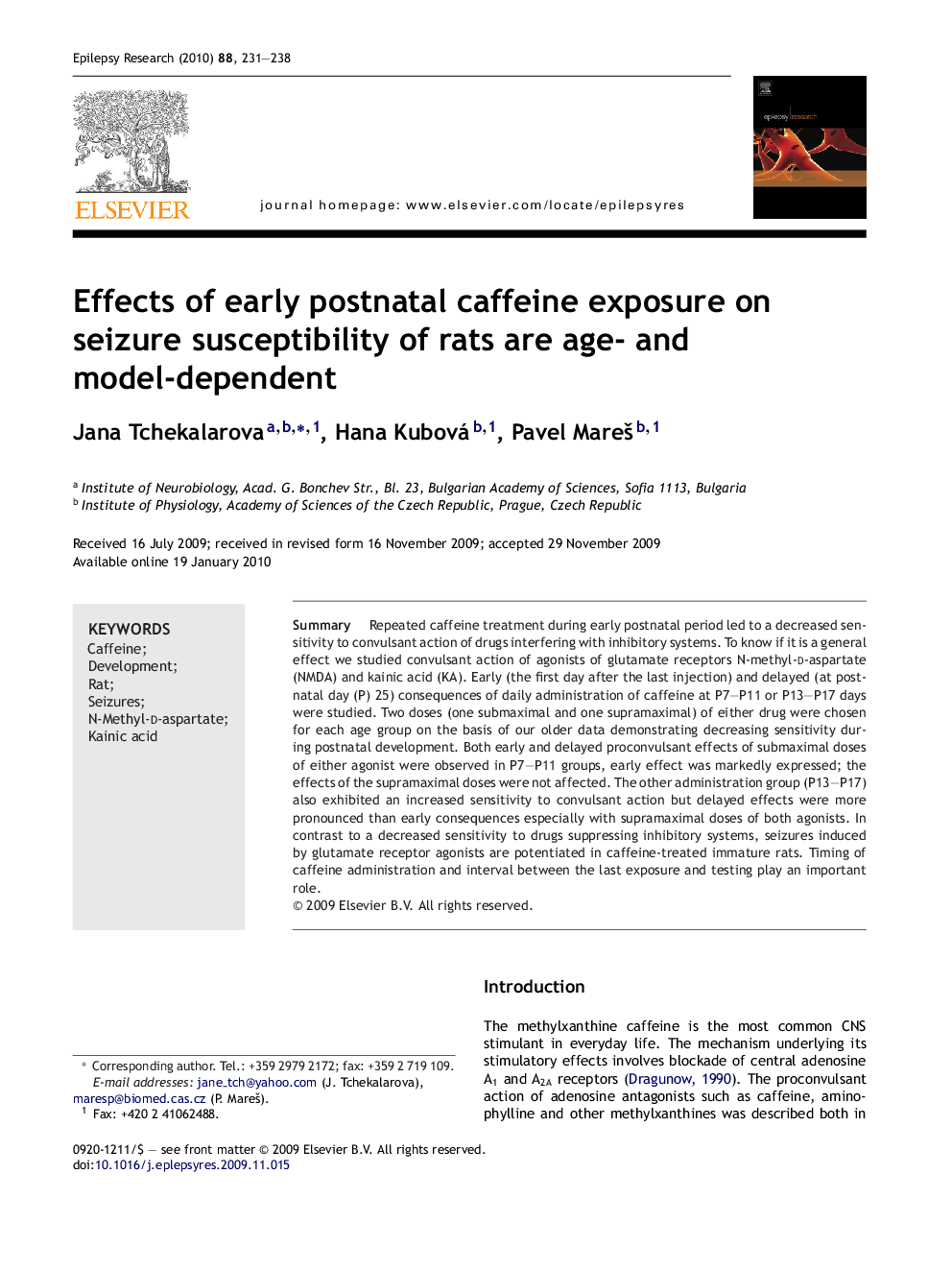| Article ID | Journal | Published Year | Pages | File Type |
|---|---|---|---|---|
| 3052678 | Epilepsy Research | 2010 | 8 Pages |
SummaryRepeated caffeine treatment during early postnatal period led to a decreased sensitivity to convulsant action of drugs interfering with inhibitory systems. To know if it is a general effect we studied convulsant action of agonists of glutamate receptors N-methyl-d-aspartate (NMDA) and kainic acid (KA). Early (the first day after the last injection) and delayed (at postnatal day (P) 25) consequences of daily administration of caffeine at P7–P11 or P13–P17 days were studied. Two doses (one submaximal and one supramaximal) of either drug were chosen for each age group on the basis of our older data demonstrating decreasing sensitivity during postnatal development. Both early and delayed proconvulsant effects of submaximal doses of either agonist were observed in P7–P11 groups, early effect was markedly expressed; the effects of the supramaximal doses were not affected. The other administration group (P13–P17) also exhibited an increased sensitivity to convulsant action but delayed effects were more pronounced than early consequences especially with supramaximal doses of both agonists. In contrast to a decreased sensitivity to drugs suppressing inhibitory systems, seizures induced by glutamate receptor agonists are potentiated in caffeine-treated immature rats. Timing of caffeine administration and interval between the last exposure and testing play an important role.
